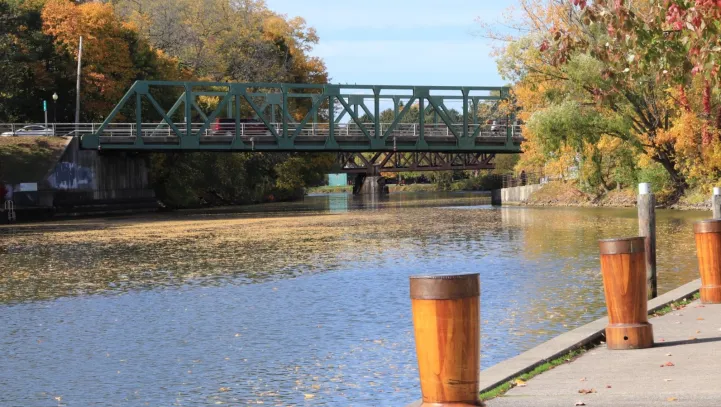Blog

Special Permits Annulled For Failure To Comply With LWRP Law
On December 22, 2020, a court in Monroe County, New York annulled Special Permits issued in 2012 by the Village of Pittsford Board of Trustees because the Applicant and the Village failed to complete the statutorily required Local Waterfront Revitalization Program (LWRP) consistency review. Friends of Pittsford Village, Inc. v. Village of Pittsford, et al., Index No. I2012013778 (FOPV). In FOPV, a community organization sought to annul the 2012 Special Permits granted for a massive apartment complex proposed to be constructed on the bank of the Erie Canal entirely within the Pittsford Village Historic District.
FOPV asserted several legal arguments requiring annulment of the 2012 Special Permits, including the Village’s failure to comply with the State Environmental Quality Review Act, and Village Code Chapter 121 concerning LWRP consistency review. FOPV also argued that the proposed project did not comply with Village Code requirements concerning the mass and scale and alleged violations of New York’s Open Meetings Law (OML). A previous decision of the Supreme Court held that the Village Board failed to comply with OML and awarded FOPV attorneys’ fees and costs.
The court’s decision was based on two separate provisions of the Village’s Code. Chapter 121 of the Code requires that any decision of any of the Village Boards must be reviewed for consistency with the Town/Village LWRP. FOPV alleged, and the Village acknowledged, that the legal requirements for waterfront consistency review had not been met prior to the issuance of the Special Permits. The court determined that the failure to comply with the requirements of Chapter 121 “is not a mere procedural irregularity but is rather a jurisdictional defect involving the validity of the approval.”
Former Section §210-19.2(b)(3)(c)[2] of the Code required that the proposed project “be compatible, in terms of scale, massing, orientation, and architectural design, with the visual character of the Village and will not alter the essential character of the neighborhood nor be detrimental to the residents thereof.” The court determined that the 2012 Special Permits were annulled because the Village’s Architectural Preservation and Review Board (APRB) determined that the project did not meet these Code requirements, and the APRB’s determination was upheld by first the Village’s Zoning Board of Appeals and then the court in a separate proceeding.